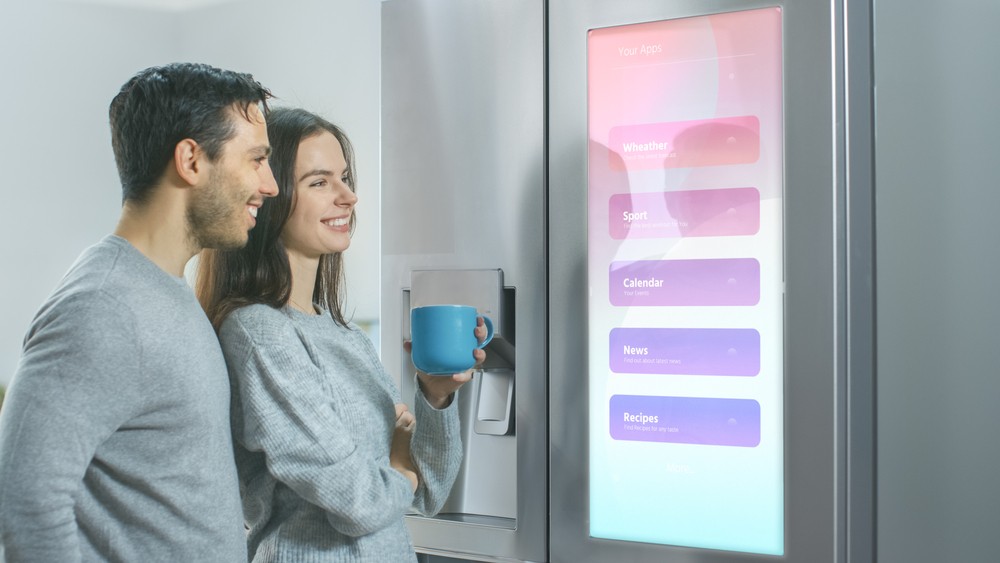One of a house’s most energy-intensive appliances is the refrigerator. Fortunately, smart refrigerators can help drastically reduce the amount of energy used to operate a fridge. These cutting-edge appliances promise not just to keep your food fresher for longer but also to significantly reduce food waste and save energy. For consumers mindful of their budget or those aiming for an environmentally conscious lifestyle, investing in a smart refrigerator offers a tangible solution.
The Impact of Food Waste
Food waste is an immense global challenge, contributing to massive economic and environmental repercussions. Each year, consumers discard millions of tons of food, a portion of which originates from improper storage at home. This is not merely a financial drain on individual households but also a significant source of greenhouse gas emissions as food decomposes in landfills. Tackling food waste at home can become an accessible way for people to contribute to sustainability while saving money.
A significant portion of food waste is preventable through better management and storage. Smart refrigerators rise to this challenge with innovative features designed to monitor and maintain food quality, aiding households in consuming food before it spoils.
Revolutionary Features of Smart Refrigerators
Modern smart refrigerators come equipped with a suite of features aimed at enhancing convenience, promoting health, and, notably, reducing food waste. Here are some of the standout capabilities that these appliances offer:
- Inventory Management: With internal cameras and barcode scanning, smart refrigerators can keep track of what’s inside. Connected apps can provide a detailed list of stored items and notify homeowners when items are approaching their expiration dates.
- Temperature Control: Maintaining the ideal temperature for various food types is crucial for minimizing spoilage. Smart refrigerators come with precise temperature zones, ensuring that meats, produce, and dairy are stored in their optimal environments.
- Energy Efficiency: These appliances are designed to consume less electricity by optimizing energy usage based on usage patterns. Many models can switch to energy-saving modes when household power demand increases elsewhere.
- Shopping List Integration: Some units allow users to link their refrigerators with grocery apps, automatically generating shopping lists based on the inventory, further minimizing the purchase of redundant or unnecessary items.
- Smart Notifications: Intelligent alerts can remind you to consume products nearing expiration and suggest recipes utilizing ingredients you already have on hand.
- Remote Accessibility: With smartphone integration, users can peek inside their fridge remotely—perfect for on-the-go shopping decisions or simply remembering what ingredients are available for meal prep.
Sustainability Meets Savings
The eco-friendly features of smart refrigerators not only offer environmental benefits but also cater to budget-conscious consumers. Let’s look at how these features translate to savings:
- Reduced Food Spoilage: By keeping track of food quantities and expiration dates, households can orchestrate meal planning that minimizes wasted goods. In doing so, grocery bills can effectively be reduced.
- Cutting Energy Costs: Although smart refrigerators typically come at a higher upfront cost than their traditional counterparts, the energy savings accrued over time can offset the initial expense. Advanced thermal technology and energy-saving modes ensure these appliances use less electricity.
- Lower Carbon Footprint: By contributing to a reduction in household food waste and drawing less energy, smart refrigerators allow users to play a part in the fight against climate change, aligning with broader sustainability goals.
Investing in Your Kitchen’s Future
Given all the features and advantages smart refrigerators bring to the table, you might wonder if taking the leap to a higher-tech fridge is worthwhile. Here are a few considerations to keep in mind as you weigh this investment:
- Long-term Value: While the initial cost can be steep, particularly for premium models, the potential savings on energy bills and reduced food waste can make smart refrigerators financially worthwhile over their operational life.
- Connected Lifestyle: If you already use smart home devices, a smart refrigerator seamlessly integrates into a connected ecosystem, allowing you to streamline everyday tasks and routines without added complexity.
- Frequent Entertainers: For those who entertain regularly or cook extensively, the features of a smart refrigerator offer unparalleled benefits in terms of managing bulk food quantities, tracking expiration dates, and optimizing storage capacity.
Selecting the Right Smart Refrigerator
Navigating the variety of smart refrigerators available can seem daunting for potential buyers. Considerations vary depending on individual needs and household habits. Here’s a nuanced view to help narrow down your options:
- Size and Capacity: While compact models are ideal for singles or smaller households, larger families may require high-capacity options to adequately meet storage needs.
- Integration Needs: Make sure the smart refrigerator you’re investing in integrates smoothly with your existing smart home system, whether it be Google Home, Amazon Alexa, or Apple HomeKit.
- Feature Prioritization: Identify which features are non-negotiable for you. Is it the energy efficiency aspect, the inventory management system, or internal cameras?
- Budget Constraint: Set realistic budget parameters and explore models that provide a good balance of required features and price.
- Wi-Fi Dependency: Ensure your home has a reliable Wi-Fi connection, as smart refrigerators rely heavily on connectivity for optimal performance.
Challenges and Considerations
While smart refrigerators bring to the forefront incredible convenience and sustainability benefits, there are a few challenges and considerations potential buyers should be mindful of:
- Repair and Maintenance: Higher technological complexity might necessitate specialized repair services, potentially leading to higher costs if issues arise.
- Internet Security: As with any IoT device, security is essential to prevent unauthorized access. Understanding and managing potential vulnerabilities is necessary for safety.
- Learning Curve: Users less comfortable with technology may face an adaptation period to become familiar with the smart functionalities, although intuitive interfaces aim to mitigate this complexity.
The promise of a smart refrigerator extends beyond mere novelty; it’s a step forward in harmonizing modern technology with everyday needs. As the technology that powers our homes grows smarter, we are provided unique opportunities to live more sustainably. Embracing a smart refrigerator may seem small, but the collective impact families make can contribute significantly to broader environmental goals and personal financial savings over time. As appliance manufacturers continue to innovate and refine these offerings, smart refrigerators are likely to become a staple in homes where efficiency, convenience, and sustainability are paramount.



